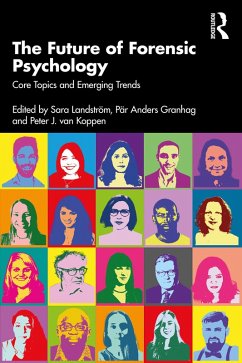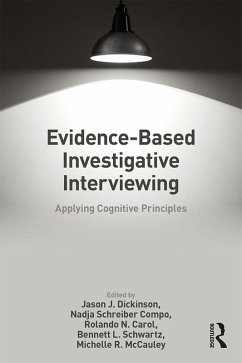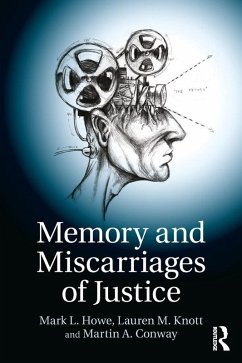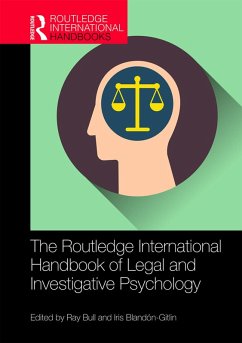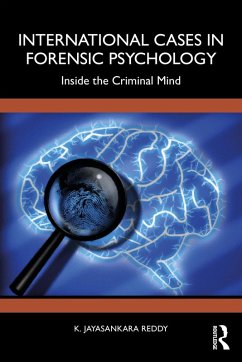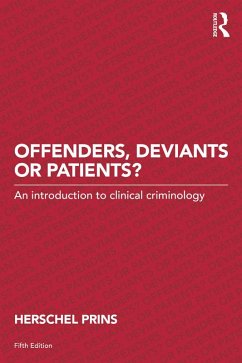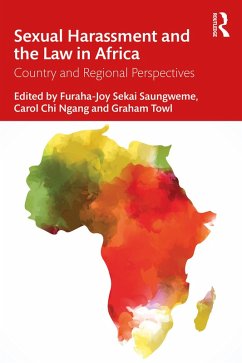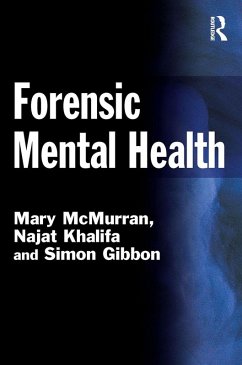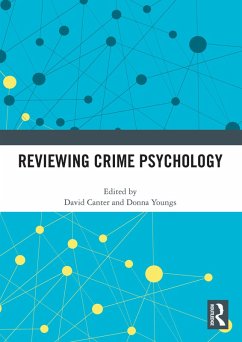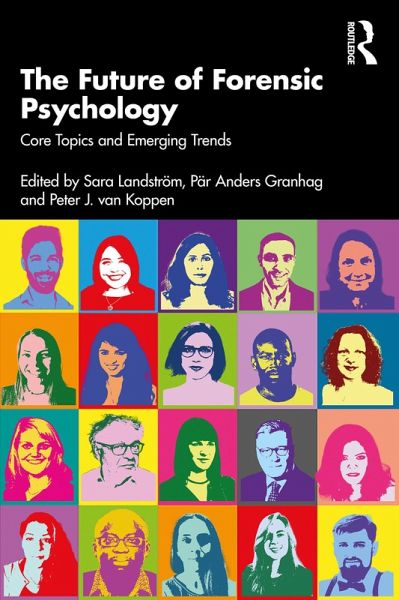
The Future of Forensic Psychology (eBook, ePUB)
Core Topics and Emerging Trends
Redaktion: Landström, Sara; Koppen, Peter J. van; Granhag, Pär Anders
Versandkostenfrei!
Sofort per Download lieferbar
35,95 €
inkl. MwSt.
Weitere Ausgaben:

PAYBACK Punkte
18 °P sammeln!
The Future of Forensic Psychology: Core Topics and Emerging Trends is an authoritative text that presents state-of-the-art research from rising stars in the field. Presented in an accessible way, it draws on cutting-edge research to analyse both core topics and current trends in forensic psychology.Borne out of the internationally recognized House of Legal Psychology doctorate programme, the book features eighteen authors from different international contexts who evaluate current and emerging topics in the field. The book is divided into three sections; eyewitness memory and testimony, investi...
The Future of Forensic Psychology: Core Topics and Emerging Trends is an authoritative text that presents state-of-the-art research from rising stars in the field. Presented in an accessible way, it draws on cutting-edge research to analyse both core topics and current trends in forensic psychology.
Borne out of the internationally recognized House of Legal Psychology doctorate programme, the book features eighteen authors from different international contexts who evaluate current and emerging topics in the field. The book is divided into three sections; eyewitness memory and testimony, investigative interviewing and, deception detection and legal decision making. Each section contains in-depth research and includes classics topics such as factors affecting eyewitnesses and determining deceit in investigations. The book also covers newer exciting developments within the field, including credibility in asylum contexts, alibies and cross-cultural aspect of interviewing.
Offering an insightful summary of the field today, this book is an indispensable read for students and researchers of forensic psychology, legal psychology and criminology. It will also be of great interest to practitioners in the judicial system.
Borne out of the internationally recognized House of Legal Psychology doctorate programme, the book features eighteen authors from different international contexts who evaluate current and emerging topics in the field. The book is divided into three sections; eyewitness memory and testimony, investigative interviewing and, deception detection and legal decision making. Each section contains in-depth research and includes classics topics such as factors affecting eyewitnesses and determining deceit in investigations. The book also covers newer exciting developments within the field, including credibility in asylum contexts, alibies and cross-cultural aspect of interviewing.
Offering an insightful summary of the field today, this book is an indispensable read for students and researchers of forensic psychology, legal psychology and criminology. It will also be of great interest to practitioners in the judicial system.
Dieser Download kann aus rechtlichen Gründen nur mit Rechnungsadresse in A, B, BG, CY, CZ, D, DK, EW, E, FIN, F, GR, HR, H, IRL, I, LT, L, LR, M, NL, PL, P, R, S, SLO, SK ausgeliefert werden.




